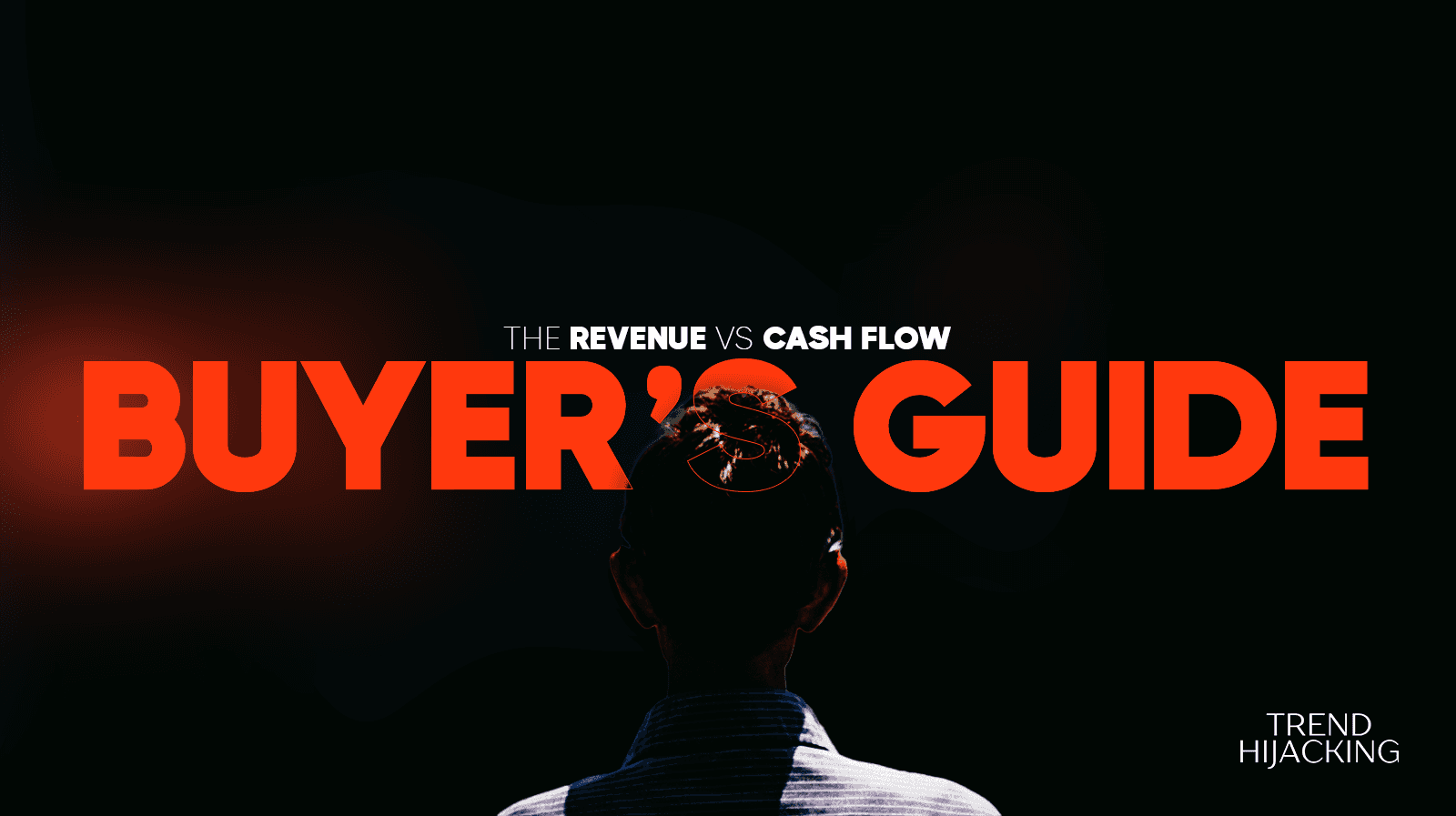
7 Key Documents To Request When Buying A Business
Buying a business is a great move compared to starting from scratch, as it gives you a giant leap ahead.
However, sometimes you might acquire a business only to end up inheriting someone else’s problems.
In such cases, you could easily get caught up in the story the seller tells you—from loyal customers, “steady profits,” “huge growth potential,” etc.
But numbers on a sales sheet don’t mean much without proof.
However, you can avoid such pitfalls by asking for crucial documents that help you verify what the seller claims.
These documents help you get the real picture of the health, history, and risks of the business you’re planning to acquire.
This article breaks down the crucial documents you need, why they matter, and the red flags to watch for.
1. Start With Documents To Verify That The Business Exists

The first, most crucial document you should request when acquiring a business is the legal documents that prove that indeed the business exists.
Unfortunately, this is the most often skipped step by many buyers.
The legal documents will help you verify that the business you’re planning to acquire is real, valid, and owned by the person selling it.
Here’s exactly what to ask for:
Articles of incorporation or organization: These are like the birth certificate of the business.
Bylaws or operating agreement: They show who gets to make decisions and how profits are split.
Shareholder or member list: This document confirms who owns what percentage.
Business licenses and permits: These act as proof that the business is allowed to operate where it does.
Expert Tip: You may also consider asking for a certificate of good standing from the state. This is quick proof that the business hasn’t been dissolved or fallen behind on filings.
According to the U.S. Small Business Administration (SBA), reviewing these legal documents early reduces the chance of title or ownership disputes later.
We Help You Buy / Build, Manage and Scale E-commerce Brands for an EXIT
E-commerce Simplified for Busy Individuals – We handle the buying, building, and scaling, so you can focus on what matters.
Growth-Focused Strategies – From sourcing to marketing, we drive growth and prepare you for a profitable exit.
Expertly Managed Exits – We build a high-value brand designed for a Lucrative exit.
2. Documents That Help You Dig Into the Money Trail

Next, you’ll need to request documents that help you dig into the business’s money.
In other words, these documents will help you find out whether the business actually makes money or just looks good on paper.
You’ll want:
Profit and loss statements and balance sheets for at least the past three years.
Tax returns for the same period (tax filings tell the truth even when sales decks don’t).
Cash flow statements show how money really moves in and out.
Debt and loan schedules listing what’s owed, to whom, and on what terms.
Accounts receivable and payable reports so you can see who owes the business money and who it still has to pay.
A 2023 report from BizBuySell found that nearly 30% of small-business deals collapse during financial due diligence because of undisclosed debts or inconsistent revenue claims.
You don’t want to learn that lesson the hard way.
If the numbers don’t match between tax filings and P&L statements, that’s your cue to pause. Don’t get it wrong, though; this doesn’t always mean fraud… but it always means you should ask questions.
3. Ask For Documents That Show What Assets You’re Supposed to Get

If the business owns things (such as property, vehicles, inventory, patents, etc.), you’d want to ask for documents that show proof of ownership and clear value.
Request the following:
A full list of assets, including vehicles, machinery, tools, furniture, and tech equipment.
Titles or deeds for real estate and vehicles.
Lease agreements if the business rents its space or equipment.
Inventory reports showing what’s in stock, what’s outdated, and how they value it is valued.
Intellectual property documents like trademarks, copyrights, or software licenses.
If something feels vague (e.g., “we have about $100,000 worth of tools”), ask the seller for receipts or appraisals. Real buyers deal in proof, not estimates.
4. Look At The People Side of the Business

While numbers and contracts matter when acquiring a business, it is also advisable to look at the people's side of the business.
This is based on the simple fact that people can make or break what you’re buying.
Request for the following:
Employee list with names, titles, and pay.
Employment contracts and any non-compete or NDA agreements.
Benefit plan details such as health coverage and retirement programs.
Any active or past labor disputes.
A 2022 study by Harvard Business Review noted that cultural and staffing issues are among the top three reasons acquisitions fail.
You don’t just inherit the company; you inherit its team, its habits, and sometimes its HR problems.
If the seller says “everyone’s loyal,” be sure to confirm that loyalty with written agreements and clear payroll records.
5. Review Contracts That Could Outlast the Sale

Contracts can quietly control your future profits once you take over the business.
A supplier with exclusive terms or a customer with underpriced agreements can eat your margin for years.
Ask for these documents:
Major customer and supplier contracts.
Partnership, franchise, or distribution agreements.
Rental and lease contracts.
Insurance policies and claim records.
Service warranties or product guarantees.
If you’re not used to reading contracts, this is where a lawyer earns their keep.
One missed clause about automatic renewals or termination rights can turn a good deal into a trap.
We Help You Buy / Build, Manage and Scale E-commerce Brands for an EXIT
E-commerce Simplified for Busy Individuals – We handle the buying, building, and scaling, so you can focus on what matters.
Growth-Focused Strategies – From sourcing to marketing, we drive growth and prepare you for a profitable exit.
Expertly Managed Exits – We build a high-value brand designed for a Lucrative exit.
6. Look for Hidden Problems In The Background

Even if everything looks solid on paper, background checks are always helpful for uncovering the trouble the seller didn’t mention—or didn’t think mattered.
Here are the documents to help you conduct these checks:
Records of past or current lawsuits, investigations, or claims.
Environmental or safety inspection reports.
Proof of compliance with local, state, and federal laws.
If the business operates in a regulated field— such as food, construction, or healthcare—this part is critical.
The EPA and OSHA both keep searchable databases for violations, and it’s smart to check them before closing any deal.
7. Understand What You’re Not Getting

Some buyers forget that not every contract or asset automatically transfers in a sale.
To help you understand exactly what you will (and what you will not) during the acquisition of a business, check for the following:
Personal guarantees by the seller that won’t carry over to you.
Licenses or permits issued in the seller’s personal name.
Customer contracts that require consent before assignment.
These details can mean the difference between a smooth handoff and months of legal cleanup.
Documents To Ask When Buying A Business FAQs:
Below are some frequently asked questions about the documents you should request for when buying a business:
What do I need in order to buy a business?
To buy a business, you need enough capital or financing, a clear understanding of the target industry, and (most importantly), you need to conduct proper due diligence. This is where you review the business's financial statements, legal documents, contracts, and licenses. You’ll also need a lawyer and accountant to help evaluate risks, confirm asset ownership, and handle the purchase agreement.
What documents are required for the acquisition of a company?
Key documents required for the acquisition of a company include financial statements, tax returns, business licenses, contracts, employee and supplier lists, and legal records. These help you verify the company’s financial health, obligations, and compliance. The purchase agreement, confidentiality agreement, and any transfer documents are also required to finalize ownership and protect both buyer and seller legally.
What do I need when buying a business?
When buying a business, you need verified financial records, legal due diligence, and a clear purchase structure—asset or share sale. A valuation helps confirm fair pricing. You’ll also need financing or funds ready, professional advisors, and transition plans for staff and customers. Reviewing every contract and liability is key before closing the deal.
What to ask when acquiring a business?
When acquiring a business, ask about the business’s profits, debts, key customers, supplier terms, and reasons for sale. Check if there are pending lawsuits or major risks. Also, ask about employee retention, lease terms, and future growth potential. Understanding these details helps uncover hidden problems and ensures you pay the right price.
Conclusion
Buying a business is part detective work and part financial audit. The story the seller tells might sound great, but only the documents can confirm it.
So before you sign a letter of intent or send a deposit, be sure to ask for crucial documents, including legal files, financial statements, contracts, and employee data listed above.
Read them closely or have someone you trust read them for you. The time you spend verifying now is nothing compared to the cost of cleaning up a bad deal later.
If you build your deal on facts instead of promises, you’ll walk away with something real: a business you actually understand.
Let’s Make Your Business Acquisition Easy
If you’ve been thinking about buying an e-commerce business but aren’t sure where to start, we can help through our smart acquisition system. We’ll guide you through finding a solid, growth-ready business and help you scale it within 60 days. Think of this as having an experienced partner who’s done it before and wants to see you win.
A Done-For-You E-commerce Business
Discover how we Build, Launch, and Scale a 6-figure/month Business for You
Learn more
The 6-Step Blueprint to E-Commerce Acquisition
See how we Acquire, Convert, and Scale with Real Case Studies to Prove It.



















